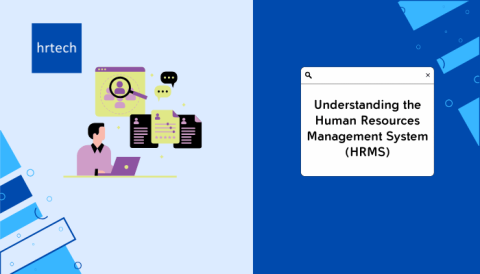Implementing global Human Resources Information Systems (HRIS) in our interconnected business world is essential for effective human resource management. This blog gives insight into the role of HRIS as a comprehensive software solution, integrating key HR functions like payroll, recruitment, and performance management. Let’s check out the importance of HRIS in harmonizing HR operations worldwide by standardizing processes and ensuring compliance with local regulations.
Understanding HRIS And Its Importance In Global Companies:
An HRIS is a software solution for managing employee data and HR processes, automating tasks like payroll and employee onboarding. In global companies, it’s crucial to manage a diverse and dispersed workforce, helping eliminate compliance and administrative complexities. However, the implementation can be complex, involving challenges like data migration, user adoption, and system integration. Overcoming these hurdles requires a thorough need assessment and effective change management strategies focusing on user adoption.
Research Methodology:
To gather information about HRIS implementation, various methods can be used, such as conducting interviews with HR professionals, reviewing case studies, and analyzing industry reports. These methods can provide insights into the challenges and best practices for implementing global HRIS systems. For instance, interviews with HR professionals can provide firsthand insights into the challenges and benefits of implementing global HRIS systems, while case studies can provide detailed examples of successful implementation strategies.
The research data should be presented clearly and concisely, highlighting the key findings and their implications for HR professionals. By using a rigorous research methodology, organizations can gain valuable insights into the challenges and best practices for implementing global HRIS systems, which can help them overcome implementation challenges and achieve their HR goals.
Common Challenges In Global HRIS Implementation:

Implementing global HRIS systems can pose several challenges, including cultural differences, language barriers, regulatory compliance, and technical issues. Communication strategies, change management, and data privacy are among the top challenges in global HR system implementation. Case studies can provide valuable insights into how these challenges manifest in real-world scenarios. The impact of these challenges on global businesses can be significant, affecting efficiency, compliance, and the overall management of international teams.
To address these challenges, organizations need to carefully plan their HRIS implementation, consider the unique needs of their global workforce, and prioritize effective communication and change management strategies. By understanding and proactively mitigating these challenges, companies can successfully implement global HRIS systems to streamline their HR processes and support their international operations.
Overcoming Cultural And Language Barriers:
When implementing a global HRIS system, organizations need to address cultural diversity and language barriers. Strategies to overcome these challenges include effective cross-cultural communication and understanding, training programs, and localization of HR processes. Successful multinational corporations that have managed these issues includes – IBM, Coca-Cola, and Unilever. Expert advice on implementing effective cross-cultural communication and understanding in HRIS includes involving local HR teams, providing language training, and creating a culture of inclusion.
By addressing cultural and language barriers, organizations can ensure that their global HRIS implementation is successful and that their HR processes are streamlined and efficient. A global HRIS can help companies eliminate complex compliance and administrative tasks, ensure compliance in different countries, and leverage automation to make HR processes more efficient.
Transforming HR through Agile Workforce Solutions
Navigating Regulatory Compliance Matters:
Implementing a global HRIS system requires organizations to navigate complex regulatory compliance matters. Organizations need to understand and stay updated with global compliance issues during HRIS implementation. They also need to prepare their HRIS to handle diverse legal and labor regulations. Case studies of businesses handling compliance issues successfully can provide valuable insights into best practices. One of the top challenges in global HR system implementation is data privacy, which can vary significantly across different countries.
Companies need to define a data privacy strategy that meets the requirements of the countries involved. The purpose of this strategy is to ensure that the company complies with all relevant regulations while protecting employee data. By addressing regulatory compliance matters, organizations can ensure that their global HRIS implementation is successful and that their HR processes are streamlined and efficient.
Solving Technical Issues In Global HRIS Implementation:
Implementing a global HRIS system can pose several technical challenges, including data security, system compatibility, and integration with existing ERP systems. To address these challenges, organizations need to consider technological and strategic solutions, such as cloud-based HRIS, data privacy strategies, and system integration.
Preparing the IT infrastructure and team for global HRIS implementation is also crucial, and organizations should involve IT professionals in the planning and implementation process. Case studies of businesses that have successfully addressed technical issues in global HRIS implementation can provide valuable insights into best practices. By addressing technical issues, organizations can ensure that their global HRIS implementation is successful and that their HR processes are streamlined and efficient.
Best Practices For Global HRIS Implementation:
Proactive planning and goal setting:
Conduct a thorough needs assessment to identify the specific requirements of your global HRIS implementation.
Set clear goals and objectives for the project, ensuring that they align with your overall business strategy.
Develop a detailed implementation plan, outlining the steps required to achieve your goals.
Building a diverse and versatile implementation team:
Assemble a team with expertise in HR, IT, and local regulations for an understanding of the project.
Involve key stakeholders from different regions to ensure that the implementation addresses the needs of each location.
Assign roles and responsibilities to team members, ensuring that each person has a clear understanding of their contributions to the project.
Constant communication and feedback mechanisms:
- Establish regular communication channels to keep all team members informed of project progress and any changes.
- Encourage open communication and feedback, allowing team members to share their concerns and suggestions.
- Regularly review and adjust the implementation plan as needed to address any issues or changes in requirements.
Continuous training and support:
Provide ongoing training and support to ensure that all users are comfortable with the new system.
Offer resources and support to help users overcome any challenges they may face during the implementation process.
Continuously evaluate the effectiveness of the training and support provided, making adjustments as needed.
Balancing standardization and localization:
- Develop a strategy for balancing standardization and localization, ensuring that the global HRIS system meets the needs of all locations while maintaining consistency.
- Consider the unique requirements of each location, such as local regulations and cultural differences, when designing the system.
- Regularly review and update the system to ensure that it remains effective and relevant in each location.
By following these best practices, organizations can successfully implement a global HRIS system, streamlining HR processes, centralizing employee data, and ensuring compliance in different countries.
Conclusion:
Blog has outlined the multifaceted challenges of global HRIS implementation, from cultural and language barriers to technical and regulatory compliance issues. It underscores the importance of strategic planning, stakeholder involvement, and balancing standardization with localization. Companies are encouraged to invest in HRIS, as it offers streamlined processes, compliance, and efficient management in a global context.
Looking ahead, the evolution of HRIS will continue to shape global business operations, emphasizing the need for adaptable and comprehensive HR solutions. The insights presented in the blog are drawn from various sources, including industry reports, case studies, and expert interviews, to provide a well-rounded perspective on global HRIS implementation.





